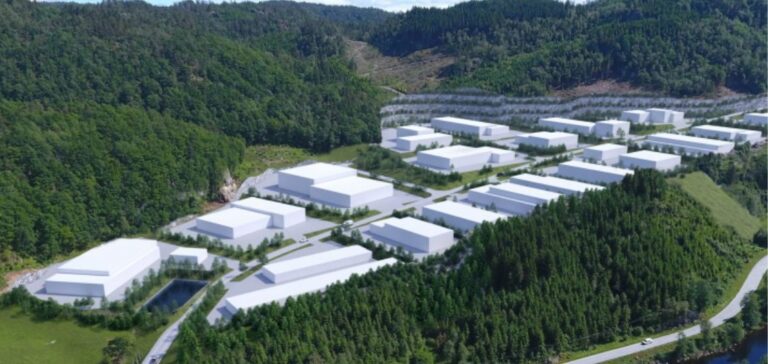The municipality of Lyngdal, in Norway’s Agder county, recently signed a cooperation agreement with Norsk Kjernekraft to explore the possibility of building a nuclear power plant in the area. This agreement aims to provide a solid decision-making basis by examining all potential sites for small modular reactors (SMRs). Lyngdal town council unanimously approved the collaboration, reflecting a proactive approach to sustainable energy. Unni Nilsen Husøy, mayor of Lyngdal, expressed her satisfaction: “As mayor, I am proud to have a forward-thinking city council that unanimously supports this agreement. I believe that nuclear energy will become an essential part of our future energy needs.”
Implications and objectives of the Agreement
Norsk Kjernekraft, whose aim is to build, own and operate SMR nuclear power plants in Norway, in collaboration with energy-intensive industries, sees this agreement as an important milestone for nuclear power in Norway. Jonny Hesthammer, CEO of Norsk Kjernekraft, emphasizes: “The municipality of Lyngdal shows its commitment to providing reliable energy to secure future jobs while protecting nature.” This agreement with Lyngdal follows closely on the heels of one with the neighboring municipality of Farsund, demonstrating a growing trend among Norwegian municipalities to consider nuclear power as a sustainable energy solution. As an energy source with low greenhouse gas emissions, SMR is perfectly aligned with Norway’s carbon footprint reduction targets.
Recent developments and outlook
At the same time, Norsk Kjernekraft also signed an agreement with the municipality of Lund in Rogaland County and submitted a proposal to the Norwegian Ministry of Energy for the evaluation of the construction of a nuclear power plant in Finnmark County. This series of initiatives underlines the rapid expansion of interest in RMS in Norway. Last month, the Norwegian government appointed a committee to conduct an in-depth assessment of the potential establishment of nuclear power plants in the country. The committee is due to deliver its report by April 2026, marking a crucial stage in the national debate on nuclear energy. The collaboration between Lyngdal and Norsk Kjernekraft represents a significant step towards the integration of SMR into the Norwegian energy mix. By offering a stable energy alternative with low environmental impact, these initiatives could meet the growing electricity needs of industry and consumers while respecting ecological imperatives. The growing commitment of municipalities such as Lyngdal and Farsund demonstrates a recognition of the strategic importance of nuclear power in ensuring a sustainable energy future for Norway. The next few years will be crucial in bringing these projects to fruition and fully integrating SMR into the national energy landscape.






















